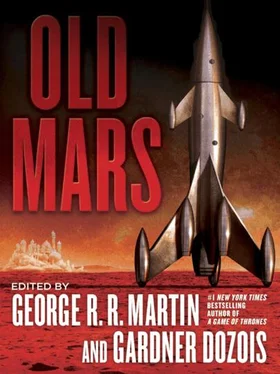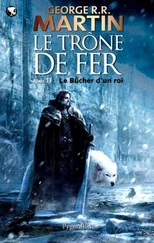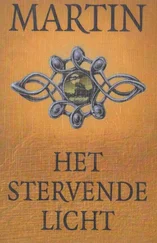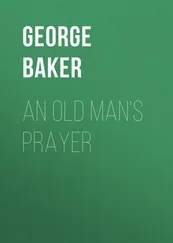Day 2:
OUD, ON HIS ORIGINAL ROUTE, COMMENTED THAT, IN FORMER days, slimshangs had made part of this day’s journey by “otherwise”—i.e., water. He dismissed how easy such an old journey must have been—on land, water for most of the day, then back to land.
Oud (and I) had to make our way around more dried channels. In Oud’s time, some still contained surface ice, as opposed to the open-water lakes they must have been in Oud’s ancestors’ times. Now not even ice remains, sublimated into the air. Just old worn watercourses, which made today’s trip a tough mother. I thought once I might have damaged a wheel (I have spares, but changing one out is not easy), but had only picked up a small, persistent rock.
Oud was one of the first to notice that the air was getting thinner. Others had seen the effects but had attributed it to other causes. The loss of water was one. Slimshang sails had once been small affairs: By Oud’s time, they were twice as large—my reproduction is 7/10 sail and sometimes that’s not enough.
It was also on this second day that Oud saw an asteroid hit in the distance.
From Oud: “A sudden plume of dust and steam on the horizon that rose a cretop (five miles) high. Much scattering of debris. Had to trim the slimshang close-to to avoid falling boulders and navigate carefully around many more. The cloud hung in the air till sundown, and probably after.”
My present course shows some remnants of Oud’s event and later ones, including a string of frosted craters off to my right. There are also a couple of shield craters or later volcanic (still active) cones that followed on that cataclysm.
The navigating was even dicier than Oud’s had been.
Some idea of the upheavals of Oud’s time may be gained by his referral (in an earlier narrative) to what is now Olympia Mons as “the new hill.”
So on went Oud on his winter journey, unconcerned by small things like the sky falling and mountains building on the horizon line.
 It’s only an accident of sound that Oud’s name is the same as the English one for a Turkish mandolin. (I believe there is an album called The Kings of the Oud on Oud , put out by Picwick Records, supposedly music inspired by Oud’s journey, done by a bunch of studio musicians, rumored to have included Lou Reed and Glen Campbell, among others. I have never heard it: People who have said that it was “pretty uninspired by anything.”)
It’s only an accident of sound that Oud’s name is the same as the English one for a Turkish mandolin. (I believe there is an album called The Kings of the Oud on Oud , put out by Picwick Records, supposedly music inspired by Oud’s journey, done by a bunch of studio musicians, rumored to have included Lou Reed and Glen Campbell, among others. I have never heard it: People who have said that it was “pretty uninspired by anything.”)
The third day of both our journeys was fairly downhill, uneventful, and of no great consequence. Night was the same. Oud did not even mention it.
The fourth day, I had some trouble with the rigging of the slimshang . Oud had troubles of a differing kind.
His narrative is deceptive. After complaining about the low quality of the foodstuffs he could find for his breakfast (he had noticed the decline in traditional plant life from his ancestors’ time earlier in the narrative), and speculating about his probably paltry lunch (“slim mossings” is the phrase he used), a few hours into the day comes the line, “If I didn’t know better, and this wasn’t winter season, I would think I was undergoing grexagging .”
Well. I wasn’t undergoing grexagging (no human ever had), but I was having the devil’s own time getting over a series of long gullies without my sail luffing. I resorted to the last ignominy of slimshanging : I got out and pushed.
Eventually, I gained height and wind simultaneously and made off at a fast clip, Solis Lacusward.
I had left Oud in his travels sure that he was not undergoing grexagging . After some more navigational and observational entries, his next sentence may take the reader by surprise.
“Bud has the tiller now. Since he knows almost everything I know, but is only just learning to use his pseudopodia, I let him learn by experience what a glorious thing a slimshang is, but also how ungainly it can become in seconds.”
Bud? asks the reader. Bud? Who is this? Where did he come from?
Oud cannot resist his little joke:
“I watch him clumsily take us around boulders and over dunes. I see how his movements and coordination become smoother and more assured as time—and miles—pass. He reminds me of myself when younger.”
Of course he did. Oud had undergone grexagging (meiosis). Bud was a younger Oud.
This is the only time in Martian literature that a narrator has grexagged in the course of an ongoing narrative. Grexagging usually took place in one’s domicile, attended by nest-brothers, and was celebrated with ritual exchanges of foodstuffs, chattel, and good wishes. Grexagging usually occurred in the spring or summer season, foretold by mood swings, dietary changes, and agrophobia.
It had happened to Oud in the winter, with no presaging except the slimshang wanderlust. He must have attributed his body’s stirrings to that, sublimating the others.
Scientist to the end, he described his changes: “I have less weight than in 393 rdyear. To think I grexagged at such an advanced age, with no forewarnings, and in the winter season, is as surprising to me as anyone.
“It is said that Flimo of the (Syrtis Major) nest had an off-bud at 419 years, but that it was unviable and was ritually eaten at the Festival of Foregiving, and the nest stayed away for the customary year before being allowed to attend the next All-Nest Convention.
“Bud looks viable to me—in the last few hours, his handling of the slimshang has grown as assured as that of someone who’d been doing it for a century or so.
“We run now at full jangle across the flat of the former sea-bottom that stretches toward (Solis Lacus). It does a Being good to watch his bud-descendant proud and confident at the tiller of his slimshang .”
It’s still debated (especially by us first wave of humans on Mars) what event it was that took place at the cultural shrine toward which Oud and Bud made their way.
Before Oud, the literature was conflicting and rather noninformative. (On Earth, when anthropologists can’t find instant meaning in any cultural artifact, they say, “This obviously had deep religious significance.”)
What had happened in the dim Martian past? we asked, before Oud’s manuscript was unearthed. Was there some Fatima- or Lourdes-type event? Was it a recurring event and ritual, a Martian Eleusinian Mystery? Rather than either, it appeared to have been a singular event, so important that its effects lasted for several million years. Whatever it was, it must have been a doozy. No Being ever really talked about it before Oud. It seemed to be part of them, a piece of general knowledge, perhaps as known to Bud a few hours after his off-budding as to Oud after his 394 years.
So onward they went toward Solis Lacus; so onward I followed them (some three hundred thousand to four hundred thousand years later), me happy in the long-gone companions of the journey; Oud proud of his new offspring; Bud probably hooting from the sheer joy of being alive and at the tiller of a fine slimshang , on a dying planet that was losing its oxygen, its water, and its heat.
“As with all nest-fathers,” says Oud, “I instructed Bud on how to more efficiently rid himself of his waste products on waking in the morning and how to use his haze-eyes to better see distant objects. He only took a few minutes to learn those skills that would last him a lifetime.”
Now Oud the scientist takes over the narrative:
“I notice that for the past two days we have had only dry snow (carbon dioxide frost), with only a few patches of real snow here and there. Not like in our ancestors’ time, when dry snow was the rarity.”
Читать дальше

 It’s only an accident of sound that Oud’s name is the same as the English one for a Turkish mandolin. (I believe there is an album called The Kings of the Oud on Oud , put out by Picwick Records, supposedly music inspired by Oud’s journey, done by a bunch of studio musicians, rumored to have included Lou Reed and Glen Campbell, among others. I have never heard it: People who have said that it was “pretty uninspired by anything.”)
It’s only an accident of sound that Oud’s name is the same as the English one for a Turkish mandolin. (I believe there is an album called The Kings of the Oud on Oud , put out by Picwick Records, supposedly music inspired by Oud’s journey, done by a bunch of studio musicians, rumored to have included Lou Reed and Glen Campbell, among others. I have never heard it: People who have said that it was “pretty uninspired by anything.”)










